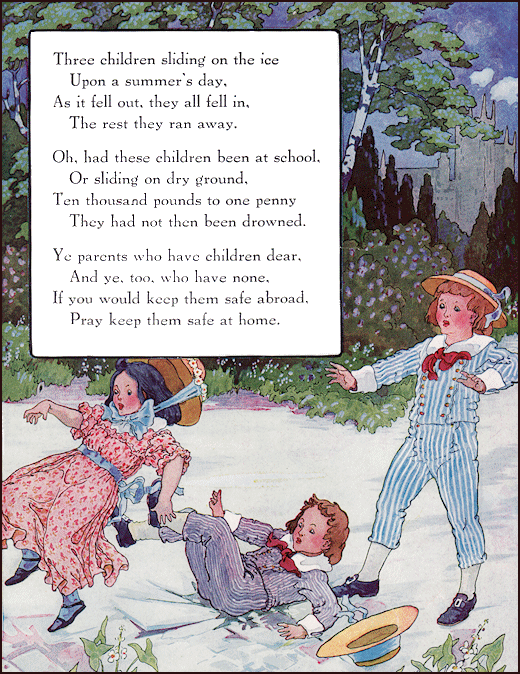The Aesop for Children by Milo Winter
The Two Goats
Two Goats, frisking gayly on
the rocky steeps of a mountain
valley, chanced to meet, one on
each side of a deep chasm through
which poured a mighty mountain
torrent. The trunk of a fallen tree
formed the only means of crossing
the chasm, and on this not even
two squirrels could have passed
each other in safety. The narrow
path would have made the bravest
tremble. Not so our Goats. Their
pride would not permit either to
stand aside for the other.
One set her foot on the log.
The other did likewise. In the
middle they met horn to horn.
Neither would give way, and so
they both fell, to be swept away
by the roaring torrent below.
It is better to yield
than to come to misfortune through stubbornness.
![[Illustration]](http://www.gatewaytotheclassics.com/gold/books/winter/aesop/winter_aesop_zpage036.gif)
| 
![[Illustration]](http://www.gatewaytotheclassics.com/gold/books/winter/aesop/winter_aesop_zpage036.gif)